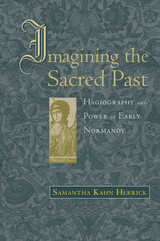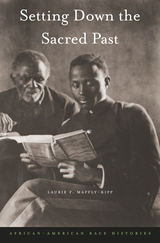
In 911, the French king ceded land along the river Seine to Rollo the Viking, on condition that he convert to Christianity. Over the next century and a half, Rollo and his descendants would become powerful and pious Christian rulers of the mighty European territory, Normandy. In 1066, Rollo's descendant William would conquer England, with papal sanction.
Investigating the role of religious tradition in the legitimation of power and the establishment of identity, Samantha Kahn Herrick illuminates the often murky early history of the duchy of Normandy. Central to this religious heritage stood the region's traditional saints, whose deeds, recorded in Latin lives, were celebrated regularly. Herrick focuses on the neglected figures Taurinus of Evreux, Vigor of Bayeux, and Nicasius of Rouen, saints with particular resonance in areas central to the Norman dukes' territorial ambitions. In elaborating a vision of the past that helped explain the present, the saints' stories sanctioned the dukes' rule.
Innovative in its historical use of hagiographical literature, this work advances our understanding of early Normandy and the Vikings' transformation from pagan raiders to Christian princes. It also sheds light on the intersection of religious tradition, identity, and power.

As early as the 1780s, African Americans told stories that enabled them to survive and even thrive in the midst of unspeakable assault. Tracing previously unexplored narratives from the late eighteenth century to the 1920s, Laurie Maffly-Kipp brings to light an extraordinary trove of sweeping race histories that African Americans wove together out of racial and religious concerns.
Asserting a role in God's plan, black Protestants sought to root their people in both sacred and secular time. A remarkable array of chroniclers—men and women, clergy, journalists, shoemakers, teachers, southerners and northerners—shared a belief that narrating a usable past offered hope, pride, and the promise of a better future. Combining Christian faith, American patriotism, and racial lineage to create a coherent sense of community, they linked past to present, Africa to America, and the Bible to classical literature. From collected shards of memory and emerging intellectual tools, African Americans fashioned stories that helped to restore meaning and purpose to their lives in the face of relentless oppression.
In a pioneering work of research and discovery, Maffly-Kipp shows how blacks overcame the accusation that they had no history worth remembering. African American communal histories imagined a rich collective past in order to establish the claim to a rightful and respected place in the American present. Through the transformative power of storytelling, these men and women led their people—and indeed, all Americans—into a more profound understanding of their interconnectedness and their prospects for a common future.
READERS
Browse our collection.
PUBLISHERS
See BiblioVault's publisher services.
STUDENT SERVICES
Files for college accessibility offices.
UChicago Accessibility Resources
home | accessibility | search | about | contact us
BiblioVault ® 2001 - 2024
The University of Chicago Press









